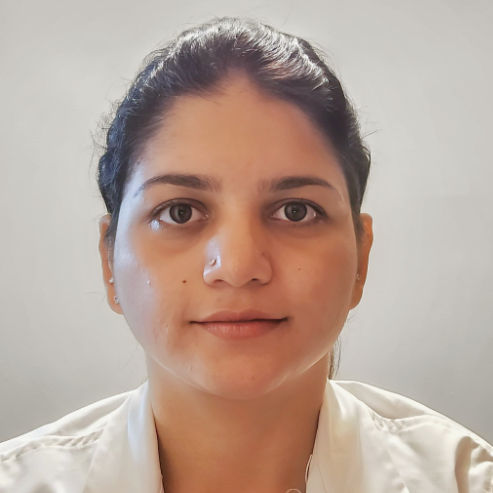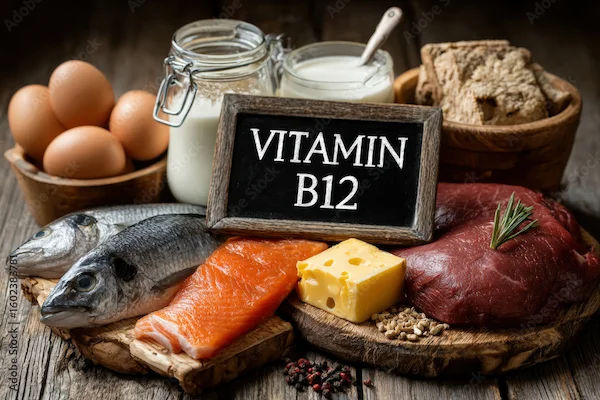Vitamin Deficiency Risk Factors
Learn what puts you at risk for vitamin deficiencies, how to spot warning signs early, and practical ways to maintain healthy vitamin levels for better overall well-being.


Introduction
Vitamins are essential nutrients that our bodies need to function properly. They play a crucial role in maintaining energy levels, immunity, bone health, and overall well-being. However, many people suffer from vitamin deficiencies without even realising it. If left untreated, these deficiencies can lead to serious health problems.
In this article, we’ll explore the risk factors for vitamin deficiency, common symptoms, and simple ways to keep your vitamin levels in check.
What Causes Vitamin Deficiency?
Vitamin deficiency occurs when your body doesn’t get enough of a particular vitamin over time. Several factors can increase your risk, including:
1. Poor Diet
Eating processed foods, fast food, or an unbalanced diet low in fresh fruits, vegetables, and whole grains can lead to deficiencies.
Vegans and vegetarians may lack Vitamin B12, which is mostly found in animal products.
2. Digestive Disorders
Conditions like celiac disease, Crohn’s disease, or IBS can interfere with nutrient absorption.
Stomach surgeries (like gastric bypass) may also reduce vitamin absorption.
3. Limited Sun Exposure
Vitamin D is produced when our skin is exposed to sunlight. People who stay indoors most of the time or live in areas with little sunlight are at higher risk.
4. Alcoholism & Smoking
Excessive alcohol consumption affects the liver’s ability to store vitamins (especially B vitamins).
Smoking reduces Vitamin C levels in the body.
5. Age-Related Factors
Older adults may absorb fewer nutrients due to reduced stomach acid production.
Infants and children with poor diets may develop deficiencies like Vitamin D or iron deficiency.
6. Certain Medications
Some medicines (like antacids, diuretics, and antibiotics) can interfere with vitamin absorption.
Common Signs of Vitamin Deficiency
Different vitamin deficiencies cause different symptoms. Here are some common warning signs:
Fatigue & Weakness (Vitamin B12, Iron, Vitamin D)
Frequent Infections (Vitamin C, Vitamin D, Zinc)
Brittle Hair & Nails (Biotin, Iron)
Muscle Cramps (Magnesium, Calcium, Vitamin D)
Poor Night Vision (Vitamin A)
Mood Changes & Depression (Vitamin D, B Vitamins)
If you experience these symptoms frequently, it may be time to check your vitamin levels.
Consult Top Specialists for Your Symptoms
How to Prevent Vitamin Deficiency?
Protecting yourself from vitamin deficiencies often starts with small daily habits.
1. Eat a Balanced Diet
Include a variety of fruits, vegetables, whole grains, lean proteins, and healthy fats. Vitamin-rich foods include:
Vitamin A – Carrots, sweet potatoes, spinach
Vitamin B12 – Eggs, dairy, fortified cereals
Vitamin C – Citrus fruits, bell peppers, broccoli
Vitamin D – Fatty fish, egg yolks, fortified milk
Iron – Red meat, lentils, spinach
2. Consider Supplements (If Needed)
If you have dietary restrictions (veganism, allergies), supplements can help.
Always consult a doctor before starting any supplements.
3. Get Enough Sunlight
Spend 10-15 minutes in the sun daily to boost Vitamin D naturally.
4. Limit Alcohol & Quit Smoking
Reducing alcohol and quitting smoking improves nutrient absorption.
5. Regular Health Check-ups
A simple blood test can detect deficiencies early.
When to See a Doctor?
If you suspect a vitamin deficiency, consult a healthcare provider. They may recommend:
Blood tests to check vitamin levels.
Dietary changes or supplements based on your needs.
At Apollo 24|7, you can easily book a consultation or schedule a vitamin deficiency test from the comfort of your home. Early detection and treatment can prevent long-term health issues.
Final Thoughts
Vitamin deficiencies are common but often overlooked. By eating a balanced diet, getting enough sunlight, and staying mindful of risk factors, you can maintain optimal vitamin levels and improve your overall health.
If you’re experiencing persistent symptoms, don’t ignore them—take action today and consult a doctor.
Consult Top Specialists for Your Symptoms
Consult Top Specialists for Your Symptoms

Dr. Mohamed Azeem
General Physician/ Internal Medicine Specialist
2 Years • MBBS,MD(Internal Medicine) CCEBDM
Karaikudi
Apollo Hospitals Karaikudi, Karaikudi
Dr. Sujay P R
General Physician/ Internal Medicine Specialist
3 Years • MBBS
Bengaluru
PRESTIGE SHANTHINIKETAN - SOCIETY CLINIC, Bengaluru
Dr. Paras Gangwal
General Physician/ Internal Medicine Specialist
28 Years • MBBS,MD General Medicine
Delhi
Dr Paras Gangwal Clinic, Delhi

Dr Bhumika Lalwani
General Surgeon
4 Years • MBBS MS
Bengaluru
PRESTIGE SHANTHINIKETAN - SOCIETY CLINIC, Bengaluru

Divyashree K
General Physician/ Internal Medicine Specialist
5 Years • MBBS
Bengaluru
Apollo Clinic, JP nagar, Bengaluru
.webp)



